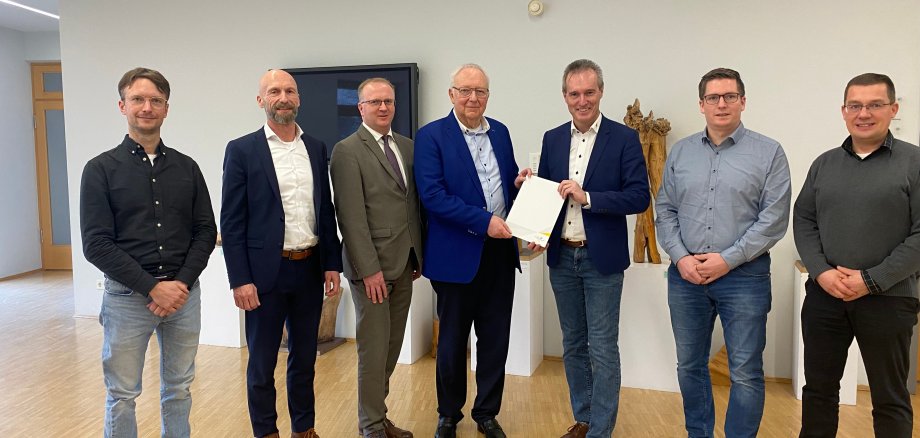Bad Wildungen timber college wants to rethink energy supply
The Bad Wildungen timber school is currently working on an innovative and sustainable energy supply concept. A joint project with Maschinenring Waldeck-Frankenberg and the development of a quarterly solution together with the district and Energie Waldeck-Frankenberg are planned. The district is supporting the school on an interim basis with an operating subsidy of 50,000 euros. The town of Bad Wildungen has held out the prospect of an investment subsidy.
Sustainable concept as a building block in municipal heating planning
In future, the timber school would like to develop its energy supply sustainably together with Maschinenring. The planned concept should also be integrated into the municipal heating planning in Waldeck-Frankenberg. "This cross-district strategy aims to cleverly bring together supply and demand for heat and energy and thus expand the energy supply in the district in line with demand - sustainably, safely and affordably," emphasises District Administrator Jürgen van der Horst.
The local conditions and infrastructure are particularly important here. Here are a few examples: Companies or industries that produce large amounts of waste heat could potentially supply private households in the future. Or: At locations where municipal buildings already consume a lot of energy, for example, a heating network could be installed that would also benefit single-family homes. Or: private individuals or institutions could obtain energy and heat from neighbouring biogas plants.
Holzfachschule and Maschinenring want to work together
The latter could also be an option for the Holzfachschule: "Supplying heat through a contracting model in cooperation with Maschinenring Waldeck-Frankenberg offers many advantages for us and other parties involved," says Hermann Hubing, Managing Director and Headmaster of the Holzfachschule. The aim is to cover the energy and heating requirements of the timber school in future with a neighbouring biogas plant operated by Maschinenring Waldeck-Frankenberg and local farmers. According to Matthias Münch from Maschinenring, this would be easy to realise: "The base load would be covered by the biogas supply, and peak loads could also be covered by using wood chips if necessary." This would ensure an optimal and sustainable supply of energy and heat for the timber school. Both partners intend to concretise their joint concept in the coming months.
EWF implements municipal heat planning
They are supported in this by Energie Waldeck-Frankenberg, which has been commissioned by the district with municipal energy and heat planning. "We are currently developing a strategy for the entire district in order to successfully master the energy and heating transition," emphasises EWF Managing Director Frank Benz. The aim is to develop neighbourhood solutions - in other words, to take a close look at the individual circumstances at each location and then develop a customised energy supply that supplies as many customers in the neighbourhood as possible. "A possible cooperation between the timber school and the machinery ring would be a pilot project. It would be an example of one of many neighbourhood solutions for the district of Waldeck-Frankenberg."
The town of Bad Wildungen wants to support the pilot project
The town of Bad Wildungen shares this view. "We see great opportunities for a sustainable energy supply for this neighbourhood in the cooperation of all partners in this project," emphasises Mayor Ralf Gutheil. "We can set a milestone here that could set a precedent." In addition, it has not been ruled out that the biogas plant of the machinery ring could possibly supply other customers in addition to the timber school. "We are thinking in every direction here."
As the new heating supply is still at the planning stage, but the operating costs for the school are expected to increase in winter, the district is supporting the timber school with a grant totalling 50,000 euros. The town of Bad Wildungen is also in favour of future funding: The committees have spoken out in favour of investment measures being funded from there and, depending on the budget situation, in the form of an investment grant amounting to 5 percent of the eligible costs, up to a maximum of 50,000 euros. According to Mayor Ralf Gutheil, the Bad Wildungen timber school is aware of this decision and will implement it in the form of a grant agreement if a corresponding funding application is submitted within the scope of budgetary possibilities.
